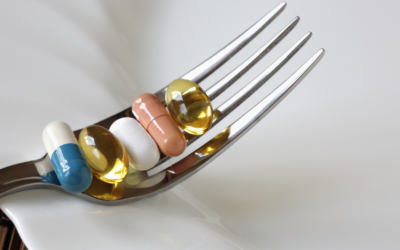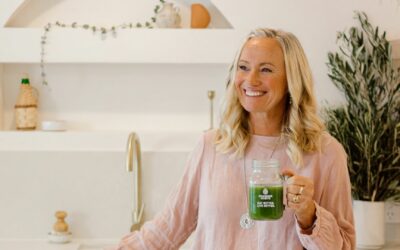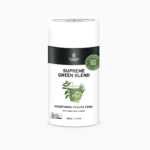My father was a pharmacist early in his career, but realised that medicine was not always helping his clients, especially when a concoction was being taken. He left pharmacy to become a chiropractor.
By the time I was born he decided that unless we were in a life threatening situation he would not give his children medications. And so I’m 51 and never had any form of medication prescribed or non prescribed. My adult children have also been fortunate enough in their health to have no need for medications.

Medicine is good but we abuse it and in the end when we really need it to work it stops working. The documentary Pill Poppers is about miracles of medicines but the nightmares they have created because of the chronic use. Antibiotic resistant bacteria, addiction to painkillers, suicide on prescribed psychotrophic drugs, heavy drug use from amphetamines legally prescribed to young children, heart attacks on weight loss medications and the list continues.
The 40,000 pills the average person will take in their lifetime creates a dependency on drugs rather then changing lifestyle. Drugs are helping us live longer, so science tells us but we are sicker then we’ve ever been. The average geriatric is on 16 different tablets.
Rachel Carson in her 1962 book Silent Spring was concerned and warning about the effects of chemicals on the environment. The science at that time knew what one chemical did, but when a mixture went into the environment the catastrophic events were 10 times.
Our body is an environment and so by putting in a bunch of chemicals (food chemicals) and medication then the ramifications are like playing russian roulette. One drug can be OK but two creates a whole new environmental change add another 14 and health can elude the individual.
How much is really known about the medicines we take, and can they be trusted to work?
Over a person’s lifetime they are likely to be prescribed more than 40,000 pills. Antibiotics, cholesterol lowering tablets, anti-depressants, painkillers, even tablets to extend youth and improve performance in bed. These drugs perform so called minor miracles day after day, but how much is really known about them?
Drug discovery often owes as much to serendipity as to science, and that means much is learnt about how medicines work, or even what they do, when they’re taken. By investigating some of the most popular pills people pop, Horizon asks, how much can they be trusted to do what they are supposed to?
Developing Drugs. The GSK pharmaceutical lab holds over 2 million nameless chemical compounds. These compounds could be toxic, or they could be a miracle cure; but how do the scientists find out?
The Effects of Drugs on the Healthy. Two people discuss the outcomes of the drug Ritalin, which is prescribed to patients with ADHD. One person actually has the condition, while the other doesn’t; what will the results show?
The Success of Viagra. Research Fellow Chris Wayman talks about how one of the best-selling drugs of all time came to be. Some experts, however, are critical of the drug’s marketing.
Contraception. Women worldwide use – and rely – on the contraceptive pill, although this wasn’t their main purpose. This is more like a series of popular online games than what is described above. Meanwhile, one scientist has discovered a male contraceptive pill.
Side-Effects. All drugs come with side-effects; however, the side-effects of some drugs proved fatal for a number of people taking them.
Addiction. For some, the drug solution has turned out to be the problem. One woman talks about her addiction to painkillers and the issues surrounding it.
Antibiotics. Antibiotics have been credited with increasing the lifespan of humans by nearly a decade. However, the body is becoming resistant to the drug, which could prove to be a big problem in the future.
Statin. A new drug, Statin, can aid an illness or disease even before someone is diagnosed, but it doesn’t come without risks.
Choosing to Die. The Exit International group believe that they should choose when they die. They have even gone about trying to create a pill with the power to kill in a peaceful manner.
I recommend you watch this documentary, it is a real eye opener and perhaps think before you pop your daily medications or pain meds. There are doctors that can help you get off your medications, but I do not recommend you do it yourself. Some medications change the body so much that if you go off them you could get seriously ill, especially heart medication. Slowly going off the medications may be your only way. Seek out a doctor that is more interested in diet than pushing medications for health, they are around and they are growing in number. I met one recently in Devonport, Tasmania at one of my talks her name was Dr Meryl Dyer. It is important we support these doctors as they do get a hard time within their profession.
Click on the link below to find out more:








0 Comments